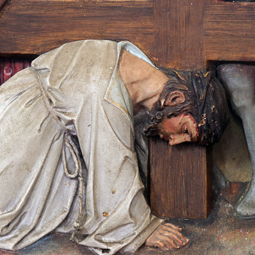Abortion, Depression and the Public Demise of Charlotte Dawson
Australia lost a well-known television personality to suicide. Charlotte Dawson was only 47 years old when she was found dead in her waterside apartment on Feb. 22.
Since she was a national celebrity, the story was given much coverage, with an outpouring of grief from people across the entertainment industry. At her memorial service, one of her closest friends said farewell to "one of the most beautiful and generous, sharp and witty, sparkling and effervescent, honest and uncompromising people ever put on the planet."
Unfortunately, I learned more about Dawson through death than through life. Hers was a life that seemed so full of promise and possibility, but in the end, it was all too much for one person to bear. Dawson left her home of New Zealand on the cusp of adulthood and spent 10 years modeling in Europe and the United States before relocating to Australia. She worked in the fashion scene and eventually moved over to television, making appearances on a range of shows, including as a judge on Australia’s Next Top Model. It was the kind of life that fueled the sales of every gossip magazine around the world.
In 2012, Dawson was admitted to the hospital after trying to commit suicide. This incident stemmed from her being the target of a particularly sickening and very public hate campaign waged against her over Twitter. When she did actually succeed in taking her life this year, the mainstream media blamed her death completely on the depression resulting from social-media bullying.
However, her battle with depression was nothing new; and while the cyber bullying was the straw that broke the camel’s back in 2012, Dawson herself identified an incident 15 years earlier that she claimed was "my first experience with depression."
In 1999, Dawson, then 33, married Australian Olympic swimmer Scott Miller. Just months later, she was excited to learn that she was pregnant. The timing of the due date, though, was set to clash with the upcoming Sydney Olympics, when her husband was expected to represent his country. Although Dawson wanted the baby, pressure was put on her to abort the child. She began to feel she was greedy for wanting the baby and that the "fair" thing to do was to compromise and have an abortion, which is legal in Australia and regulated by each state.
According to her 2012 memoir, Air Kiss & Tell, eventually, she went to an abortion facility. Initially, Miller was with her, but he didn’t feel comfortable there, and he left her alone to go through it alone. Once Dawson arrived home, the gravity of what happened settled upon her, and she realized that "something had changed." She became, in her own words, "a depressed mess … single, damaged and miserable."
The following year, Dawson and Miller’s marriage ended. Miller never even made the Olympic team, the focus of which had led him to sacrifice his own child. Dawson lived the next 15 years in a series of transitory relationships, including dating a man 24 years her junior. Her public career moved forward, but her inner life was never the same again.
Dawson’s life and death may have been news, but her story is not uncommon. Her socialite and celebrity friends mourned her in death, but how many of them really listened to her story of love and loss? How many would dare to be as forthright as she was and speak about the tragedy of her post-abortion depression? In the days following her death, one politician made reference to the sadness of her abortion and subsequent depression, but he was criticized for bringing it up; such comments were viewed as controversial and disrespectful.
Many studies that show an increased level of depression among women who have had abortions are quickly dismissed by abortion proponents as "anti-abortion." Acknowledgement of any type of post-abortion suffering continues to be ignored by both the American Psychological Association and the American Psychiatric Association, whereas "caffeine-withdrawal disorder" and "Internet-gaming syndrome" receive mentions in the famed diagnostic manuals.
We live in what we can accurately call a "culture of death." Contraception and abortion are the acceptable norms of our era, and society fails to grasp why depression and suicide continue to rise.
Death breeds death. It is easy to lay blame on Dawson herself, on those who pressured her to abort her child, on her husband, who put his pursuit of glory ahead of the needs of his wife and child, or on the countless celebrities who live and promote a life so contrary to anything reminiscent of genuine love. But, tragically, all these people are broken.
There is hope, though — and that hope, perhaps ironically, lies deep within human brokenness. It is the ever-present truth that life is good — always good. Life is not always easy, but life is a joyful gift in all of its forms. The "culture of death," with its guilt, anger and hatred, is the opposite of what a human being wants. We often make mistakes in where we think true joy will be found, but it is always in the same place. Life, always life.
Bernard Toutounji writes
from Sydney, Australia.
His website is
FoolishWisdom.com.
- Keywords:
- April 6-19, 2014
















